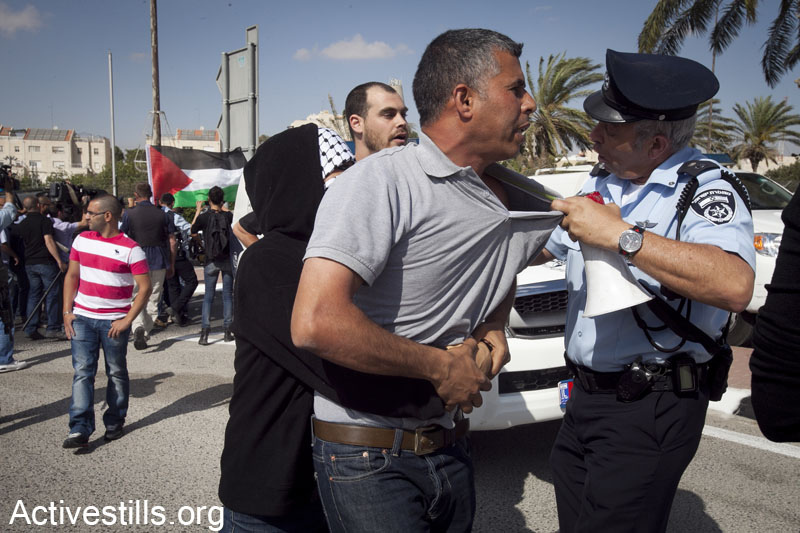Tag: Demonstration
-
Nakba Day: Palestinian group attempts to return to 1948 territories, one arrested
By Ling Lewis 19 May 2012 | International Solidarity Movement, West Bank A Palestinian man was arrested at Ni’lin checkpoint on Tuesday, April 15 during a Nakba Day demonstration. The procession successfully crossed the checkpoint which separates the West Bank from Palestinian territories seized in 1948. They were violently forced back by occupation soldiers and…
-
Activists seal off settlement in solidarity with hunger strikers
13 May 2012 | Popular Struggle Coordination Committee Protesters blocked the entrance to the Ma’ale Adumim settlement, meters away from one of Israel’s main interrogation centers in the West Bank. Two protesters were arrested. 50 Palestinian, Israeli and international activists blocked the entrance of the Ma’ale Adumim settlement today, in support of the Palestinian prisoners’…
-
#PalHunger protest in Ramallah
by Fadi Arouri 29 April 2012 | Fadi Arouri Photography Palestinians gather in Ramallah to protest in support of prisoners who have been on hunger strike in Israeli jail. While two have been on hunger strike for over 60 days, the majority of the estimated 3,000 participants have been on hunger strike since April 17th.

